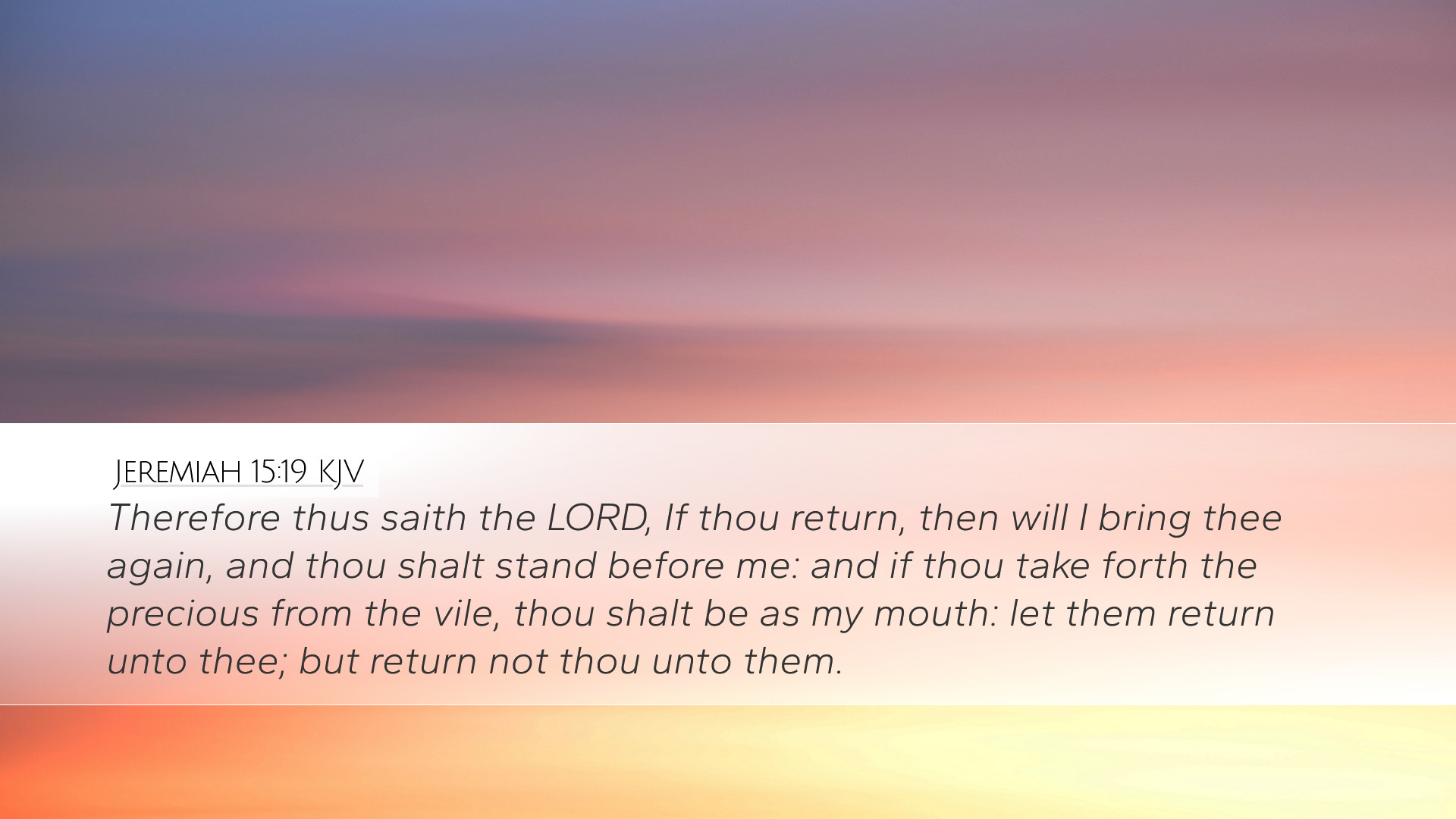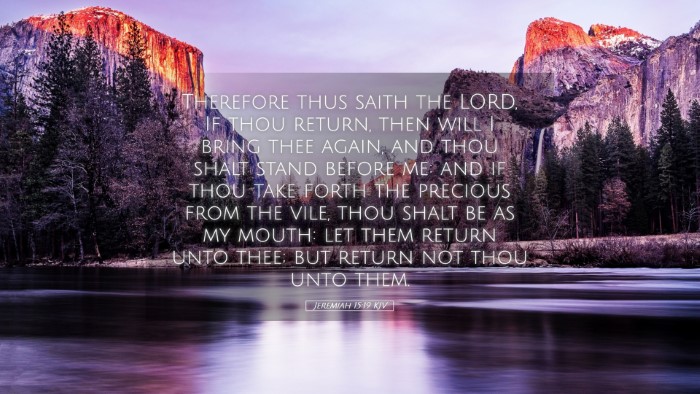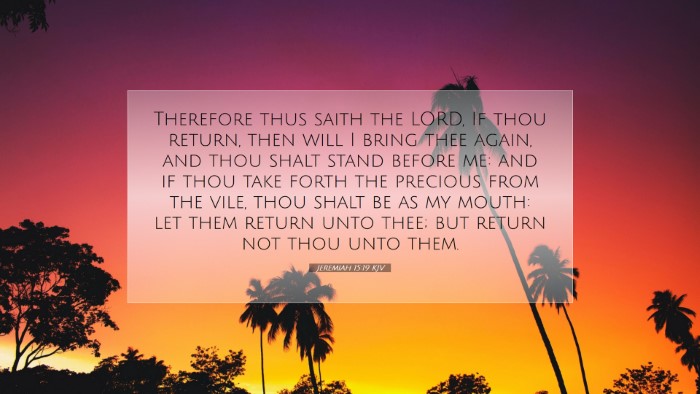Commentary on Jeremiah 15:19
Verse Text: "Therefore thus says the Lord: 'If you return, I will restore you; You shall stand before Me; If you take out the precious from the vile, You shall be as My mouth. Let them return to you, but you must not return to them.'"
Introduction
The verse Jeremiah 15:19 stands as a poignant call to repentance and restoration. In this passage, God speaks through the prophet Jeremiah, highlighting the conditional promise of restoration contingent upon the prophet’s sincere return to Him. This commentary synthesizes perspectives from notable public domain scholars including Matthew Henry, Albert Barnes, and Adam Clarke, bringing forth insights crucial for pastors, students, theologians, and Bible scholars.
Contextual Background
The book of Jeremiah is a prophetic text in which Jeremiah confronts the people of Judah about their sins and calls them to repentance. By this stage in Jeremiah's ministry, he has endured rejection and persecution. The context of Jeremiah 15:19 is critical as it captures God’s enduring mercy and the grave urgency of the prophet's mission amidst national calamity.
Historical Context
This verse occurs during a time when Judah is facing impending judgment due to its persistent idolatry and rebellion against God. Jeremiah’s life and prophecies reflect God’s profound disappointment and wrath against a wayward people, serving as both a warning and a call to repentance.
Exegesis of the Verse
Conditional Restoration
“If you return...” - This phrase establishes the conditional nature of God’s promise. Both Henry and Barnes emphasize that God desires His people to turn back from their rebellion. Restoration is not automatic; it requires a conscious effort to forsake sin and seek a right relationship with God.
Role of the Prophet
The latter part of the verse emphasizes the profound responsibility of the prophet. “You shall stand before Me; If you take out the precious from the vile, You shall be as My mouth.” Clarke points out that this signifies authenticity in the prophetic voice—speaking God’s truth without dilution. The phrase “take out the precious from the vile” reflects a necessary separation that aligns with God’s holiness. The prophet must discern what is holy and declare it amidst a corrupt culture.
Theological Themes
Repentance and Divine Mercy
The theme of repentance underscores the character of God as merciful and gracious. God’s desire to restore, as highlighted by Henry, reflects His nature. The call to repentance is not merely a command but an invitation to experience renewal, emphasizing His longing for reconciliation.
The Cost of Discipleship
“Let them return to you, but you must not return to them.” - This admonition signifies the cost of discipleship. Here, Barnes expounds on the call for the prophet not to compromise or be enticed by the very culture he is called to reform. It highlights the isolating nature of standing firm in one’s convictions, a poignant lesson for contemporary believers.
Practical Applications
For Pastors and Ministers
- Emphasizing Repentance: The ministry must continually emphasize the need for personal and communal repentance, understanding it as a pathway to restoration.
- Staying True to God’s Word: Encourage ministers to discern between precious truths and tempting lies of the world, ensuring their preaching reflects divine truths.
For Theological Students
- Understanding Context: Engage deeply with the historical and cultural context to appreciate the nuance of prophetic literature better.
- Interpreting God’s Nature: Explore the dynamic between God’s justice and mercy as revealed in prophetic texts.
For Scholars and Theologians
- Critiquing Cultural Conformity: Analyze how contemporary churches balance engagement with culture without compromising biblical integrity.
- The Role of Restoration: Research the theological implications of restoration in the Old Testament vis-à-vis the New Testament understanding of reconciliation through Christ.
Conclusion
Jeremiah 15:19 serves as a clarion call urging believers to pursue repentance and authenticity in their relationship with God. The insights from public domain commentaries illuminate the depth of this text, revealing timeless truths applicable to various facets of Christian ministry and scholarship. As we reflect on this verse, may we be inspired to not only heed God's call to return but also to boldly proclaim His truth amidst a world that often diverges from His ways.


